Grains and Pulses

Reducing Post-Harvest Losses in Indian Agriculture- A Case Study of Selected Crops
30/04/2024
Given the huge amount of food losses in India, reducing post-harvest losses (PHL) is much more cost effective and benign to nature’s basic resource endowment, namely soil, water, air, and bio-diversity than producing more and losing more. India needs to ramp up its efforts in this direction with modern technologies in harvesting, drying, storing, and transporting its agri-produce from farmers’ fields to retail outlets.

Nutrition and the environment. Nurturing people, protecting the planet
26/04/2023
This discussion paper highlights the interlinkages between nutrition and the environment across various dimensions from policy to impact. It focuses on diets and food systems, which lie at the nutrition−environment nexus, including some aspects related to FLW.
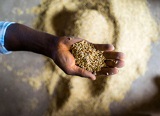
A holistic approach to food loss reduction in Africa: food loss analysis, integrated capacity development and policy implications
10/06/2022
This paper highlights the critical need for a paradigm shift of current research and development programs aimed at food loss reduction, as demonstrated by findings of a project implemented in Burkina Faso, the Democratic Republic of Congo and Uganda by the United Nations Rome-based Agencies (RBAs) – The Food and...
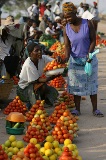
Estimation of nutritional postharvest losses along food value chains: A case study of three key food security commodities in sub-Saharan Africa
01/02/2022
Postharvest losses (PHLs) amplify food insecurity and reduce the amount of nutrients available to vulnerable populations, especially in the world's Low and Middle Income Countries (LMICs). However, little is known about nutrient loss at the various postharvest stages. The objective of our study was to develop a methodology and a...
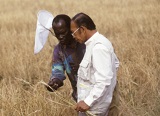
Critical stages for post-harvest losses and nutrition outcomes in the value chains of bush beans and nightshade in Uganda
01/01/2022
The reduction of post-harvest losses (PHLs) has been identified as a key pathway to food and nutrition security in sub-Saharan Africa. However, despite policy prioritisation, knowledge about the severity of PHLs remains scant, especially when it comes to nutrient-dense crops such as African nightshade and bush beans.
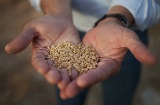
Quantifying Food Loss and Waste in Saudi Arabia
23/08/2021
Based on the findings achieved, recommendations are made to cover the various aspects of the whole food supply chain (FSC) and to aim at more efficiency and higher levels of productivity. Our findings have significant implications by estimating the FLW baseline indicator and providing the different stakeholders of FSC with the optimal actions to do to reduce FLW rates.

Food loss analyses to identify critical loss points, main causes of losses and to recommend solutions to reduce post-harvest losses
01/01/2021
The UN Rome-based agencies joint project aimed to improve smallholder food security and incomes in food deficit areas by reducing food losses. The Project contributes to the African Union Malabo Declaration (AUC, 2014) in which Member States committed to halve the levels of post-harvest losses by 2025.

Highlights of the project "Mainstreaming food loss reduction initiatives for smallholders in food deficit areas"
01/01/2021
This brochure highlights the achievements and results of a project jointly developed and implemented by the three United Nations (UN) Rome-based agencies (RBA) FAO, IFAD, and WFP from 2013 to 2020, funded by the Swiss Development and Cooperation Agency, that contributes towards the AU Malabo declaration and SDG targets for...
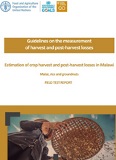
Guidelines on the measurement of harvest and post-harvest losses – Estimation of crop harvest and post-harvest losses in Malawi (maize, rice and groundnuts). Field test report
31/10/2020
A study was conducted in two Agriculture Development District (ADDs) of Malawi, Salima and Lilongwe, to pilot a new methodology for estimating on-farm harvest and post-harvest losses. The study was carried-out with technical support from the Global strategy to improve agricultural and rural statistics (GSARS) of the Food and Agricultural...
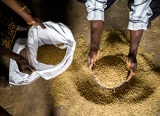
Amélioration de la gestion des pertes après-récolte dans les filières céréales et légumineuses au Burkina Faso
01/02/2020
Cette note d’orientation politique est basée sur les travaux de l’atelier de consultation national qui s’est tenu à Ouagadougou au Burkina Faso le 15 mars 2017, dans le cadre du projet «Intégration des initiatives pour la réduction des pertes alimentaires pour les petits producteurs dans les zones à déficit alimentaire» décrit ci-après.
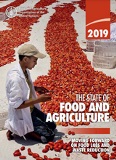
The State of Food and Agriculture 2019. Moving forward on food loss and waste reduction
14/10/2019
Reducing food loss and waste is widely seen as an important way to reduce production costs and increase the efficiency of the food system, improve food security and nutrition, and contribute towards environmental sustainability. Growing attention to food loss and waste is reflected in the Sustainable Development Goals (SDGs).

Analyse des pertes alimentaires: causes et solutions. Études de cas sur le sorgho, le maïs, le niébé au Burkina Faso.
01/09/2019
Deux études ont été conduites au Burkina Faso pour une analyse approfondie des pertes après-récolte et de leurs causes le long des chaînes d’approvisionnement (CA) du sorgho, du maïs et du niébé.La première étude sur le terrain des pertes après-récolte a été conduite entre les mois d’octobre 2015 et d’avril...

Analyse des pertes alimentaires: causes et solutions. Études de cas sur le maïs et le riz en République démocratique du Congo.
01/04/2019
Deux études ont été conduites en République Démocratique du Congo (RDC) pour une analyse appro-fondie des pertes après-récolte et de leurs causes le long des chaînes d’approvisionnement (CA) du maïs et du riz.La première étude sur le terrain des pertes après-récolte a été conduite entre les mois d’avril et septem-bre...
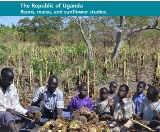
Food loss analysis: causes and solutions. The Republic of Uganda. Beans, maize, and sunflower studies
01/01/2019
A food loss analysis study was undertaken along the maize, sunflower and beans supply chains in Uganda.The maize supply chain (grain and flour) and the sunflower supply chain(grain, oil and seed cake) selected are those found in Apac and Lira districts, in the Lango subregion, northern Uganda. More specifically for...
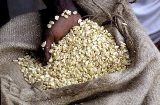
Food loss analysis: causes and solutions - Case study on the maize value chain in the Federal Democratic Republic of Ethiopia | Factsheet
01/09/2018
To improve global, regional and local knowledge about the underlying reasons for food loss, as well as to assess where critical loss points occur, FAO undertook a series of case studies involving numerous food supply chains in developing countries. Utilizing a defined food loss and waste analysis framework.
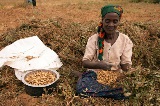
Food loss analysis: causes and solutions - Case study on the groundnut value chain in the Republic of Malawi | Factsheet
01/09/2018
To improve global, regional and local knowledge about the underlying reasons for food loss, as well as to assess where critical loss points occur, FAO undertook a series of case studies involving numerous food supply chains in developing countries. Utilizing a defined food loss and waste analysis framework.

Food loss analysis: causes and solutions - Case study on the groundnut value chain in the Republic of Malawi
01/09/2018
To improve global, regional and local knowledge about the underlying reasons for food loss, as well as to assess where critical loss points occur, FAO undertook a series of case studies involving numerous food supply chains in developing countries. Utilizing a defined food loss and waste analysis framework.

Food loss analysis: causes and solutions - Case study on the maize value chain in the Federal Democratic Republic of Ethiopia
01/09/2018
To improve global, regional and local knowledge about the underlying reasons for food loss, as well as to assess where critical loss points occur, FAO undertook a series of case studies involving numerous food supply chains in developing countries. Utilizing a defined food loss and waste analysis framework.

Food loss analysis: causes and solutions - Case study on the teff value chain in the Federal Democratic Republic of Ethiopia
01/09/2018
To improve global, regional and local knowledge about the underlying reasons for food loss, as well as to assess where critical loss points occur, FAO undertook a series of case studies involving numerous food supply chains in developing countries. Utilizing a defined food loss and waste analysis framework.

Food loss analysis: causes and solutions - Case study on the rice value chain in the Democratic Republic of Timor-Leste
01/09/2018
To improve global, regional and local knowledge about the underlying reasons for food loss, as well as to assess where critical loss points occur, FAO undertook a series of case studies involving numerous food supply chains in developing countries. Utilizing a defined food loss and waste analysis framework.
